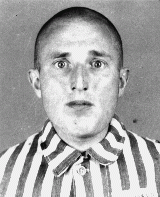You searched for: 叙利亚facebook开户【TG飞机:@bapingseo】代谷歌开户优化推广包上【TG电报:@bapingseo】老挝谷歌搜索推广【Telegram:@bapingseo】麻将官方进入天天稳胆2串1预测星力七代捕鱼软件真人官方网站?8cK2LY/I3oai9.html
<< Previous | Displaying results 776-800 of 993 for "叙利亚facebook开户【TG飞机:@bapingseo】代谷歌开户优化推广包上【TG电报:@bapingseo】老挝谷歌搜索推广【Telegram:@bapingseo】麻将官方进入天天稳胆2串1预测星力七代捕鱼软件真人官方网站?8cK2LY/I3oai9.html" | Next >>
-
Escape from German-Occupied Europe
ArticleMany Jews sought to leave Germany after the Nazi rise to power. After WWII began, escape from areas under Nazi control became increasingly difficult or impossible.
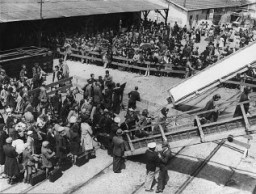
-
Chiune (Sempo) Sugihara
ArticleJapanese diplomat Chiune (Sempo) Sugihara was recognized as a "Righteous Among the Nations" for his aid to refugees in Lithuania during World War II.
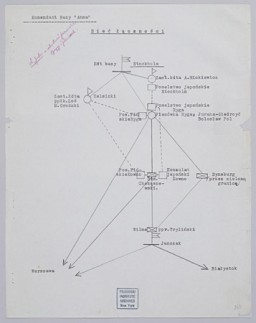
-
Corrie ten Boom
ArticleCorrie ten Boom was recognized as a Righteous Among the Nations for her efforts to shelter Jews during the German occupation of the Netherlands
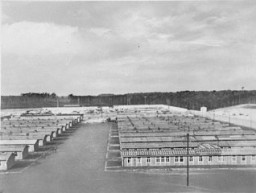
-
Foehrenwald Displaced Persons Camp
ArticleAfter WWII, many Holocaust survivors, unable to return to their homes, lived in displaced persons camps in Germany, Austria, and Italy. Read about Foehrenwald DP camp.
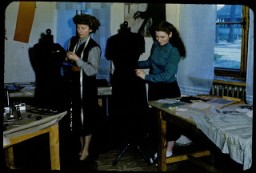
-
Nazi Propaganda and Censorship
ArticleNazi efforts to control forms of communication through censorship and propaganda included control of publications, art, theater, music, movies, and radio.
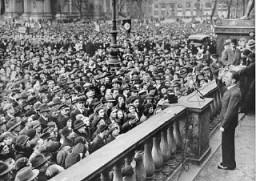
-
Emanuel Ringelblum and the Creation of the Oneg Shabbat Archive
ArticleEmanuel Ringelblum was a Warsaw-based historian and social welfare worker before WWII. Learn about the secret archive he would establish in the Warsaw ghetto.
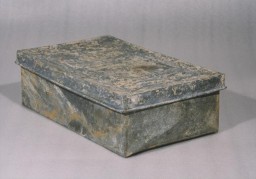
-
Vittel
ArticleGerman authorities established the Vittel internment camp in occupied France in 1941. It belonged to the complex of POW camps designated Frontstalag 194.
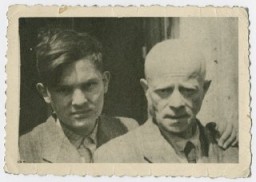
-
Warsaw Polish Uprising
Timeline EventAugust 1, 1944. On this date, the Warsaw uprising began with the Polish Home Army rising against the Nazis in an attempt to liberate Warsaw.
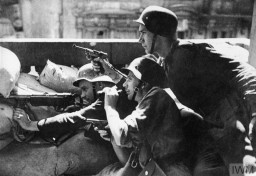
-
Liberation of Ravensbrück
Timeline EventApril 30, 1945. On this date, Soviet forces arrived at Ravensbrück concentration camp in Germany.

-
Battle of the Somme
Timeline EventJuly 1, 1916. On this date, the most causalities in a single day during World War I occurred at the Battle of Somme.
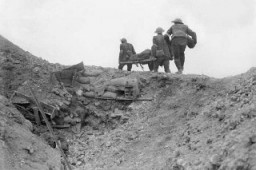
-
Law on Alteration of Family and Personal Names
Timeline EventAugust 17, 1938. On this date, the German government issued the Executive Order on the Law on the Alteration of Family and Personal Names.
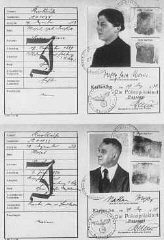
-
German Jews' Passports Declared Invalid
Timeline EventOctober 5, 1938. On this date, the Reich Ministry of the Interior invalidated all German Jews' passports and required them to have a "J" stamped on them.
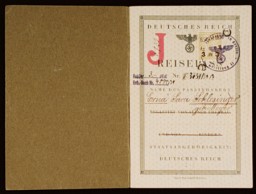
-
Adolf Eichmann Found Guilty
Timeline EventDecember 15, 1961. On this date, Adolf Eichmann was found guilty of crimes against the Jewish people and sentenced to death.
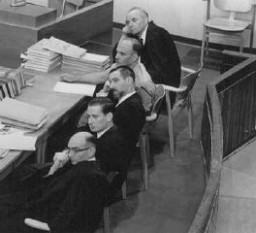
-
The 42nd Infantry Division during World War II
ArticleThe 42nd Infantry Division participated in major WWII campaigns and is recognized for liberating the Dachau concentration camp in 1945.
-
Collections Highlight: Auschwitz Through the Lens of the SS
ArticleKarl Höcker created a personal album of photographs chronicling SS officers’ activities at Auschwitz. Learn about this chilling collection.
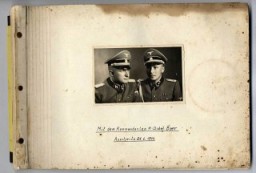
-
Auschwitz Through the Lens of the SS: The Album
ArticleLearn about photographs contained in Karl Höcker’s album depicting official visits, ceremonies, and the social activities of the Auschwitz camp staff.
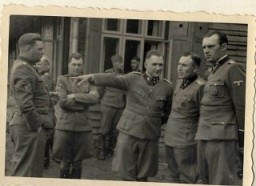
-
Welek Luksenburg
ID CardWelek grew up in Dabrowa Gornicza, an industrial town in western Poland. His father, Simcha, was a wholesale meat merchant and his mother, Rozalia, served as president of the local chapter of the Women's International Zionist Organization. Welek's older brother, Szlomo, was a dentist. The Luksenburgs were among the several thousand Jews who lived in Dabrowa Gornicza. 1933–39: Like many other children in the town, Welek attended public school. Because his family was very religious, he did not attend…
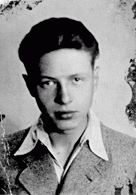
-
Abraham Bergman
ID CardAbraham was born to a Jewish family in Krasnik, a town in the Lublin district of Poland. The town had a large Jewish population. Abraham's father was a tailor. When Abraham was 2, his mother died and he was raised by his grandmother. At the age of 7, Abraham started public school. 1933-39: Abraham liked school but found it difficult. The Christian children often yelled at the Jews, "You killed our God." One year, on the day before Christmas break, some kids brought ropes tied to iron weights to school.…
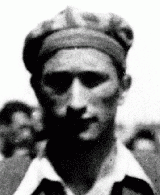
-
Walter Szczeniak
ID CardWalter was the oldest of eight children born to Polish-Catholic immigrant parents in a town near Boston, Massachusetts. The family moved back to Poland when Walter was a child, and lived on a family farm near Ostroleka in northern Poland that Walter's mother had inherited. Because his father's American nickname was "Stetson," Walter was mistakenly registered as "Charles Stetson" on his American birth certificate. 1933-39: After Walter completed secondary school, his father sent him to the University of…
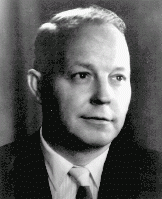
-
Elias (Elya) Grosmann
ID CardElias was born in a small town in the hill country of northeastern Slovakia. His family was Jewish, and he grew up in a religious home in which both Yiddish and Hungarian were spoken. His father was a peddler and his mother ran a small general store. Besides attending public schools, Elias received a formal Jewish education and attended Medzilaborce's rabbinical academy. 1933-39: The townspeople were mostly Jewish and worried about Nazi Germany. The German annexation of Austria in March 1938 alarmed them.…
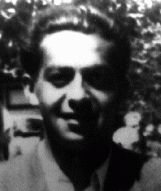
-
Elsa (Eliska) Skutezka Kulkova
ID CardElsa was the eldest of three children born to Jewish parents in Brno, the capital of Moravia, where her father ran a successful shipping company. In 1920 she graduated from a German-language secondary school. She married and moved to Bratislava, but the marriage was unsuccessful and Elsa returned to Brno in 1926, where she opened a millinery business. 1933-39: On May 24, 1933, Elsa married Robert Kulka and the couple settled in Robert's hometown of Olomouc. Their son, Tomas, was born a year and a day…
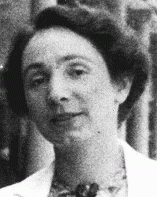
-
Lidia Lebowitz
ID CardThe younger of two sisters, Lidia was born to Jewish parents living in Sarospatak, a small town in northeastern Hungary. Lidia's parents owned a successful dry goods business. At the time, ready-made clothes were still rare in the countryside. Townspeople and local farmers would purchase fabric at the Lebowitz store and then take it to their tailor or seamstress to be sewn into clothes. 1933-39: Lidia was 2 when her Aunt Sadie, who had immigrated to the United States many years earlier, came to visit…
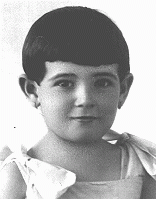
-
Ema Schwarzova Skutezka
ID CardOne of two children born to religious Jewish parents, Ema was raised in the small Moravian town of Lomnice, where her mother ran a general store. In 1901 Ema married Eduard Skutecky, a regular customer at her mother's store. The couple settled in the city of Brno, where they raised three children. Eduard ran a shipping company. 1933-39: By 1933 Ema's three children were grown and had moved out. Four years later her husband passed away, and Ema moved in with her eldest daughter, Elsa. Elsa and her husband…
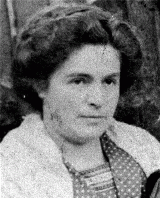
-
Siegfried Wohlfarth
ID CardThe elder of two sons of religious German-Jewish parents, Siegfried grew up in the city of Frankfurt. Upon completing his education, he became a certified public accountant in Frankfurt. In his free time he worked as a freelance music critic. While on a vacation in 1932 on the North Sea island of Norderney, he met Herta Katz, a young woman with whom he quickly fell in love. 1933-39: The Nazis had fired Siegfried from his government job because he was Jewish. Although his mother opposed the match,…
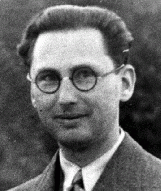
-
Karl Gorath
ID CardKarl was born in the small town of Bad Zwishenahn in northern Germany. When he was 2, his family moved to the port of Bremerhaven. His father was a sailor and his mother became a nurse in a local hospital. After his father died, Karl continued to live with his mother. Karl was 20 when he began training as a deacon at his parish church. 1933-39: Karl was 26 when his jealous lover denounced him and he was arrested at his house under paragraph 175 of the criminal code, which defined homosexuality as an…
